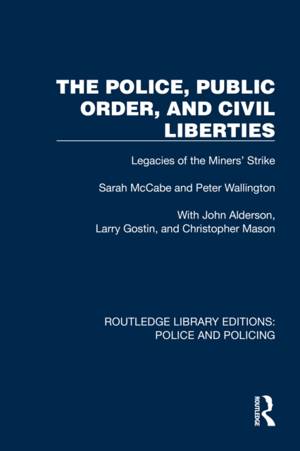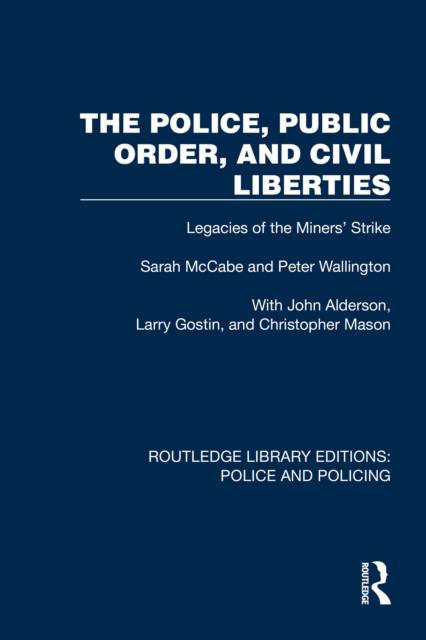
- Retrait gratuit dans votre magasin Club
- 7.000.000 titres dans notre catalogue
- Payer en toute sécurité
- Toujours un magasin près de chez vous
- Retrait gratuit dans votre magasin Club
- 7.000.0000 titres dans notre catalogue
- Payer en toute sécurité
- Toujours un magasin près de chez vous
The Police, Public Order, and Civil Liberties
Legacies of the Miners' Strike
Sarah McCabe, Peter Wallington, John Alderson
183,45 €
+ 366 points
Format
Description
Originally published in 1988, this book is a report on policing during the miners' strike of 1984-5. The report describes the policing of the strike in detail from a range of published, unpublished, and eyewitness sources. The strike is set in the context of developments in law and policing before and since.
Spécifications
Parties prenantes
- Auteur(s) :
- Editeur:
Contenu
- Nombre de pages :
- 210
- Langue:
- Anglais
- Collection :
Caractéristiques
- EAN:
- 9781032420097
- Date de parution :
- 31-03-23
- Format:
- Livre relié
- Format numérique:
- Genaaid
- Dimensions :
- 156 mm x 234 mm
- Poids :
- 489 g

Les avis
Nous publions uniquement les avis qui respectent les conditions requises. Consultez nos conditions pour les avis.






